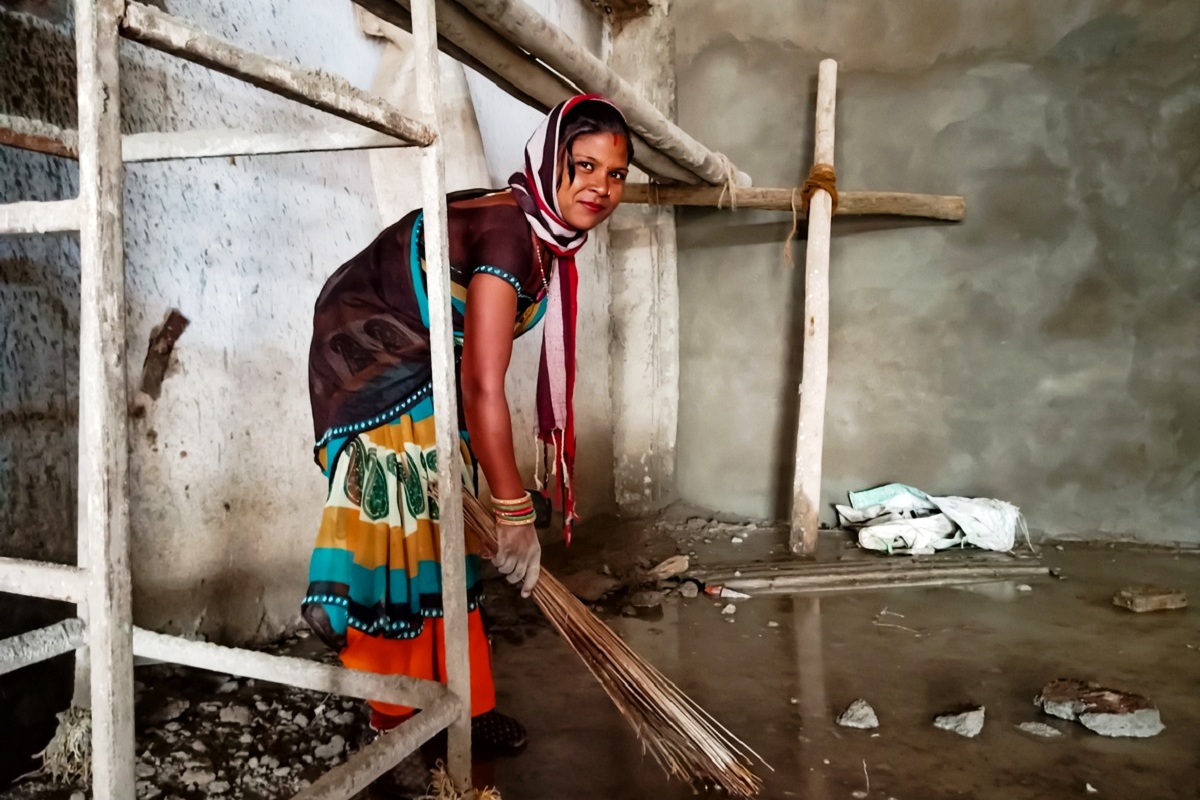Can you imagine anyone will come all the way from Bengal to Jaipur to toil from morning to evening unless there was a really urgent need? This question was raised by a middle-aged migrant worker who had spent several years scrubbing floors and washing dishes. We were sitting in an outhouse of a building in Jaipur, discussing problems of domestic workers in this and some other cities of Rajasthan.
As explained by activists of Rajasthan Mahila Kamgar Union (RKMU), nearly 90 per cent of domestic workers in Jaipur are women migrant workers, the largest number from West Bengal, followed by Assam, Bihar and Uttar Pradesh. They generally lead a life of low wages and difficult survival but what they have faced in recent times is an unprecedented crisis. Periodic lockdowns have led to widespread loss of work and income.
This has led to increasing hunger and malnutrition. In addition, it is becoming more difficult to retain even their modest rented shelters as they are unable to pay rent. Another factor troubling them is how they will repay the debts they are incurring these days to keep their families surviving at subsistence levels. In many families, the husband works as a construction worker. This work too has been badly affected, and hence family income has been hit; in some months reduced to zero.
With low savings to fall back upon, survival is the big question. According to a survey conducted by RKMU, none of the domestic workers covered lived in their own house even before the advent of the present crisis. As many as 96 per cent lived in rented houses while 4 per cent lived in servants’ quarters. While these houses are generally small and cramped, after the crisis came some had to shift to even smaller dwellings. In some cases, owners asked them to vacate houses.
With the advent of the crisis, many pleaded with house owners to give them some exemption. In 5 per cent cases, a two-month exemption was given, in 15 per cent cases a one-month exemption was given but in all other cases, no exemption was given. In these conditions a real shelter crisis has emerged, in addition to the income, employment and food crisis. According to the survey, pending rent dues of each family range from Rs. 15,000 to Rs. 35,000. There are other debts to be paid as well.
So, this needs to be seen as the emergence of a longer-term crisis. While the Rajasthan government should be generous towards this vulnerable section of population, perhaps the states from where the migrant workers come can also extend some help in these exceptionally difficult times, and not just at the government level. According to another survey – conducted by the International Domestic Workers Federation in Maharashtra last year – while 62 per cent domestic workers lost jobs temporarily during lockdowns as many as an additional 24 per cent permanently lost jobs.
Although they had to struggle very hard even before Covid, most of them had some savings in March 2020. These have been lost, and replaced with debt. So, there is an urgent need today to help those who have served others for a long time. Whatever relief packages the government has in mind, it should not forget the urgent needs of domestic workers most of whom are women.
From various points of view, domestic workers have high vulnerability and have higher need for protection, a need which has increased in Covid times. It is in this wider context that the recent demands raised by the National Platform of Domestic Workers (NPDW) in Delhi in the first week of August should be seen. These demands have highlighted the need for a four-pronged urgent intervention by the government to help millions of domestic workers.
Firstly, there is need for protective comprehensive legislation for the welfare of domestic workers. The NPDW has helped to formulate a draft of such legislation which is in keeping with the various important provisions of the ILO Convention 189. This Convention is known to have incorporated essential protective provisions which should be retained, while also taking into account our local realities.
Some senior activists working on this issue have highlighted that state laws are not adequate and a national-level law is needed, as most domestic workers are migrants. Secondly, apart from an effective national law, immediate relief is also needed by domestic workers. This can be in the form of a lump sum cash payment or transfer to take care of pressing immediate needs, often resulting from the fact that most domestic workers were without work and wages for several weeks at a stretch.
Free dry rations in a higher quantity and for an extended period of time, can also be very useful. Thirdly, registration of all domestic workers should be initiated in various parts of the country. This process should be made simple for domestic workers, keeping in view their constraints. Last but not the least, overall work prospects should be improved in urban areas in various ways.
One possible step, which has been often discussed in recent times, is to introduce an urban employment guarantee scheme, or extension of the rural employment guarantee scheme to urban areas in ways that will work in cities and towns. Practical formulations of such a scheme have been introduced and circulated in recent times. In the context of domestic workers, it is important that such schemes provide their household members additional work opportunities.
All aspects of this four-pronged approach should be considered and adopted to provide badly needed relief and security to domestic workers and to help them tide over exceptionally difficult times.
(The writer, a journalist and author, has been closely associated with several social movements in India)











